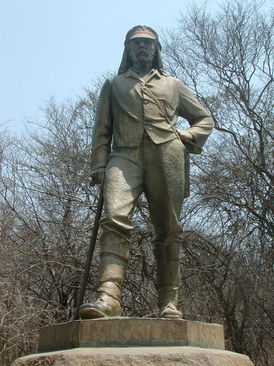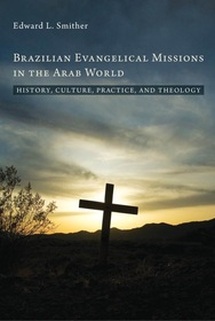posts
|
Registration is now open for the 2014 Southeast regional Evangelical Missiological Society meeting, March 29 (8a-5p) at Columbia International University (Columbia, SC) on the theme of “Mission and Diaspora.” Professors, students, and mission practitioners are invited to attend.
Plenary speakers and topics include: Terry Casino (Professor of Missiology, Gardner-Webb University regional chair, Lausanne Movement), “What is Diaspora Missiology?” Leiton Chinn (International Student Ministry Mobilizer, Lausanne Movement), “Reaching the International Student Diaspora in North America.” Register ($20 or $10 for students) on-line HERE or by mailing in this FORM. Please also take this opportunity to join EMS or update your membership HERE. For area hotels that offer a discount for CIU events, click HERE. Saturday lunch can be purchased in the CIU cafeteria and there are many dinner options in nearby downtown Columbia. For further questions, contact Ed Smither ([email protected]). Other confirmed presentations include: “Missions in Our Backyard: Evangelism Among Newly Arrived Hispanics to the United States,” Dr. Carlos Martin, Southern Adventist University “Demonstrating the Uniqueness of Jesus Christ in Globalized Contexts,” Dr. Howard Owens, Tennessee Temple University “Ethiopian Immigrants as Cross-Cultural Missionaries: Activating the Diaspora for Great Commission Impact,” Jessie Udall, Columbia International University “Christians at the Crossroads: The Challenge of the Apocalypse to Believers in Asia Minor in John’s Revelation,” Dr. Mike Naylor, Columbia International University “Reflections on Ministry to the Diaspora in Japan and Sweden,” Dr. David Cashin, Columbia International University “Understanding the Challenges of Diaspora Missions in North America,” Trent DeLoach, Boyce College “Organizing to Reach the Diaspora: A Case Study of the International Mission Board, SBC Changing Its Overseas Structure from Geographic Components to Global Affinity Groups” Dr. Jerry Rankin, President Emeritus IMB and Zwemer Center for Muslim Studies “Homeland Connections: A Survey of a Diaspora Mission to the Kurds in Canada,” Michelle Raven (Christar) “Mid-Term (1-3 year) Missionaries Reaching Diaspora Peoples in North America,” Don Johnson, SEND International “Bridging the Knowledge-Action Gap: Proposals for Learner Transformation and Implications for Mentoring and Discipling Diaspora Peoples,” Dr. Jon Penland, Toccoa Falls College “Reaching Iraqi Muslim Refugees in Milwaukee,” Ken Katayama, Crossover Communications International “More than Strangers Next Door. . . Our Neighbors: The PeopleGroups.info Initiative to Research the Nations within the United States,” J.D. Payne, Church at Brookhills and Bryan Galloway, International Mission Board “Connecting with Diaspora Peoples through Facebook,” Trevor Castor, Columbia International University “A Celtic Approach to Reaching Oral Learners: A Survey of the Oral and Visual Strategies used by the Iona Community ca. 600-800,” Dr. Ed Smither, Columbia International University “‘Honorification’: A Contextualized Missiology for Honor and Shame Cultures,” Jason Borges I've been playing Switchfoot's new Fading West album rather non-stop since I got it last week. I'm taking my wife to see them in concert next month so I need to be prepared to fully sing along. Though my favorite Switchfoot album to date is Vice Verses, this record is growing on me.
"Love Alone is Worth the Fight" is the first single off the album and has a great official video that captures the spirit of the song. The whole album and accompanying film narrates the band's story of moving to California to pursue music and surfing. This opening song--mixed with sounds that someone else can explain and that's also easy to sing along with (oh-oh-oh)--offers an effective lift off to the Fading West journey. As I probe "Love Alone" a bit more, the band seems to be talking about more than a mere quest to surf, strum, and sing; but rather a desire to live ("we're only here for a season, looking for the rhyme and reason"). The obstacles to love and life are largely fear ("is it fear you're afraid of, what are you waiting for?"). This involves risk and surely the group took a big risk in attempting to make their living in music. Of course, Switchfoot journeys as a band in community; so it's living and loving in community with friends that seems pretty central to who they are. As I listen, I hear some promises from Jesus and the Scriptures playing in the background. Regarding the invitation to life, our Lord said, "I came that they might have life and have it abundantly" (John 10:10). To this John, one of his closest followers, added, "There is no fear in love, but perfect love casts out fear. For fear has to do with punishment, and whoever fears has not been perfected in love. We love because he first loved us" (1 John 4:18-19 ESV; see more 1 John 4:7-17). Good song. If you've not heard it yet, have a listen. Like many, I read with much interest Andrea Palpant Dilley's article in Christianity Today, "The Surprising Discovery about those Colonialist, Proselytizing Missionaries," which summarizes the research findings of sociologist Robert Woodberry on a potential correlation between evangelical missions and social transformation. His work particularly focuses on the 19th century in which missionaries were often accused of doing more civilizing that evangelizing. Certainly, the noted failures of this period have prompted more sensitive contextualization in the present day. It seems though that Woodberry's research has first challenged the rarely disputed claim that missionaries did much harm by promoting their own cultures; so this is fresh research.
I think what most grabbed my attention in the article was the clear social transformation that took place in many contexts where Protestant missionaries labored. Dilley summarizes: "Areas where Protestant missionaries had a significant presence in the past are on average more economically developed today, with comparatively better health, lower infant mortality, lower corruption, greater literacy, higher educational attainment (especially for women), and more robust membership in nongovernmental associations." Even more insightful is that the primary focus of these 19th century missionaries was not social transformation, but gospel proclamation--calling sinners to repent and find forgiveness and new life through Christ's accomplished saving work at the cross and through his resurrection. The article cites Calvin College professor Joel Carpenter who writes, "Few [missionaries] were in any systemic way social reformers." That said, while gospel proclamation seemed primary, missionaries also ministered in deed by instituting literacy programs, establishing schools and hospitals. As I read Woodberry's observation of the outcome of 19th century missions, I'm reminded of my CIU colleague Bill Larkin's careful exegesis of Luke 4:18-19 (Larkin, 1998:158-69), which reads: “The Spirit of the Lord is upon me, because he has anointed me to proclaim good news to the poor. He has sent me to proclaim liberty to the captives and recovering of sight to the blind, to set at liberty those who are oppressed, to proclaim the year of the Lord's favor.” The poor of Luke 4 (and Is. 61) are the spiritually poor and Jesus' primary task is proclaiming God's salvation. However, this passage does seem to extend other realms, too. Simply put, a spiritual conversion ought to bear fruit in the physical, political, and economic arenas. Larkin concludes, "Jesus the Christ is sent by the Father to proclaim the good news of release and to accomplish a holistic but spiritually focused salvation" (Larkin, 169). In short, Woodberry's sociological study has caused us to rethink missions history and, of course, drive us back into Scripture to clarify our theology of mission. "The early 1980s marked a sea change in Brazilian evangelical missions. Through a variety of events and key individuals God initiated a movement to send missionaries, not just to 'near neighbors,' as had been happening in some measure for decades, but to peoples who had not been a focus of Brazilian churches, including Muslim Arabs. Edward Smither, through publication of his recent University of Pretoria doctoral dissertation, offers us a helpful look at key factors affecting the fruitfulness of this movement."
I'm grateful for this encouraging review from David Greenlee, an author and missiologist who has served with Operation Mobilization for many years. While reading the review I remembered that I had met Greenlee once about 20 years ago when he gave me a lift from Malaga, Spain to catch a ferry over to Morocco. Small world. While much of the feedback is positive, I do appreciate Greenlee's critique and call for further research: "There are three areas in which I would like to see others build on Smither’s important work, items I might consider for project assignments or classroom discus- sion if teaching a course related to this book’s theme. First, he makes no reference to studies published by Project GLOBE, Geert Hofstede, or Fons Trompenaars. Smither’s findings would be enhanced if correspondence was demonstrated between his work and these empirically validated studies on cultural values. Second, I won- der to what extent the factors of cultural proximity affect Brazilians’ fruitfulness in ministry as compared to workers from Korea or the West. Third, two of Smither’s research purposes had to do with promoting self-reflection by Brazilians and consid- eration by others of missiological lessons to be learned and applied (4), something he helpfully launches in his concluding chapter “Toward a Brazilian Theology of Mission.” Whether in the classroom or among a gathering of missionaries and lead- ers, I would encourage readers to take this work further, together considering impli- cations and applications to be drawn from these findings and applied in our own mission structures and ministry settings." The complete review, published in the respected journal Missiology: An International Review, is available HERE. Now this is a truly unplugged performance--one of Jon Foreman's signature after shows. It's nice that he gives the fans just a bit more before climbing onto the bus for the next leg of the tour. Through "Your Love is Strong," it seems that Jon is winding down from the big stage with worship. I really like this song because I think it's a nice, contextualized, modern rock version of The Lord's Prayer that includes some good reflection on the content of the prayer.
Switchfoot is one of my favorite bands. I can't wait to get the Fading West album when it comes out in a few days and I can't wait to see them live again. Hopefully when I do, Jon will be up for an after show. I’m glad that I took some time this week to read John Fea’s Why Study History: Reflecting on the Importance of the Past. Fea is chair of the history department at Messiah College, author of Was America Founded as a Christian Nation, and is a prolific blogger.
Fea’s book is well-written and inviting and fulfills his own admonition that historians should connect with a broader audience outside of the academy, including the church. This book is great for history students to get a sense of historiography, including how the discipline has developed through the centuries. In his discussion on what historians do, he shows how some historians see their work as merely striving to accurately report the past, while others have no problem evaluating history from a moral grid. Ultimately, Fea succeeds in showing how history can be done Christianly. I will limit my highlights to four areas: 1. His admonition to students to embrace the “Five Cs” of historical thinking: · Change over time—historians acknowledge that the past and present (and their peoples) are not the same. · Context—cultural and historical contexts must understood for accurate interpretation and sources must be read in context. · Causality—understanding what events and conditions shape others. · Contingency—understanding the role of human choices in shaping history. · Complexity—that the past is a "foreign country" and we must carefully engage the past on its terms. 2. Christian theology helps us in history. Realizing that man is created in the image of God helps us to do history by giving dignity to all peoples and keeps the historian from a triumphal, ethnocentric view of the past. Grasping the doctrine of sin also helps to make sense of the violence and atrocities that have occurred throughout history. 3. While on one hand, historians must strive to accurately and objectively relate the past, the Christian historian’s worldview—informed by such doctrines as providence, the incarnation, and the image of God—can contribute to the work of history. This perspective is really not new and can be traced back to Augustine's philosophy of history in his City of God. 4. Finally, Fea makes a good argument that the study of history (and the rest of the humanities) helps produce critical thinkers who can read, research, evaluate sources, and think outside of the box—qualities attractive to many employers today. In chapter 8, (“what do you do with a history major?”) Fea highlights some of his history students who have gone into business, medicine, ministry, humanitarian work and other non-teaching fields because of their training. Fea also engages this question regularly on his blog. In sum, this is a helpful book that has grown out of Fea’s teaching of undergraduate history. He has succeeded in showing the relevance of history for students of all majors and also for Christians in general. |
Archives
November 2023
|




 RSS Feed
RSS Feed
